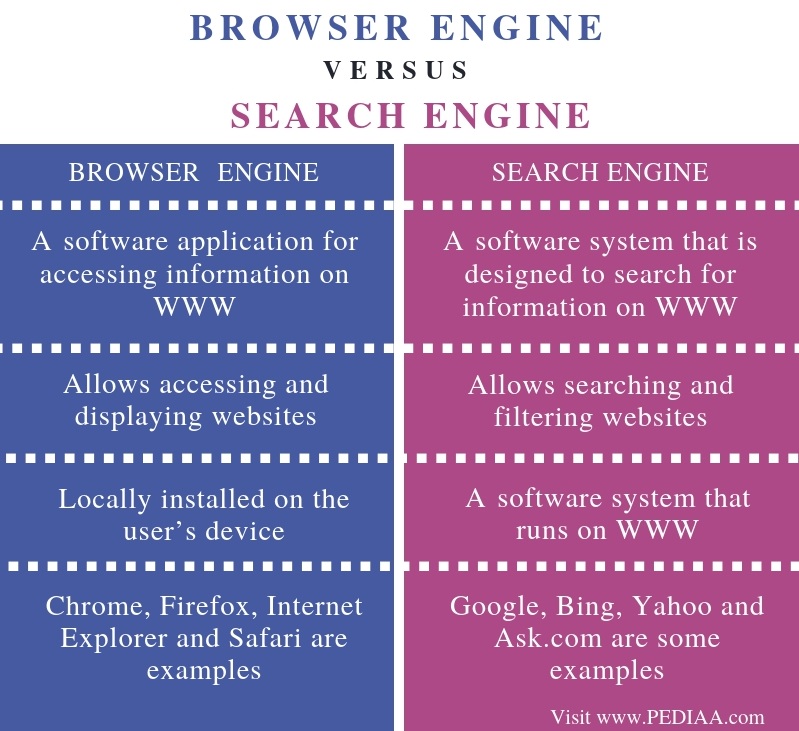Understanding the Difference Between Web Browsers and Search Engines
Web browsers and search engines are two of the most important tools that people use on the internet every day. While they are both commonly used for finding information online, they serve very different purposes. This article will explore the key differences between web browsers and search engines.
Accessing Websites and Services
Web browsers are used to access websites and online services. Popular browsers like Google Chrome, Mozilla Firefox, and Microsoft Edge let you visit any website by entering its URL or clicking on links. Browsers handle displaying webpage content and include additional features like bookmarking, syncing between devices, and extensions. They serve as the gateway to the online world.

Finding Relevant Information
Search engines are designed specifically for finding relevant webpages and documents based on search queries. When you enter a search term into an engine like Google, Bing, or DuckDuckGo, it analyzes its massive index of web content and returns a list of the most relevant results. Search engines do not require knowing specific URLs - they surface information from across the internet based on your keywords.
Crawling and Indexing the Web
Behind the scenes, search engines employ sophisticated algorithms and technology for continuously crawling the web and building comprehensive indexes of pages and their content. Services like Google invest heavily in web crawling robots that scour the internet 24/7 finding new and updated pages. This allows search engines to serve up timely results from their massive databases of indexed webpages. Browsers do not perform these data-intensive crawling and indexing functions.
Personalized Filtering and Ranking
Leading search engines like Google now factor in a user’s location, search history, and other personal details to deliver personalized results. The order of pages in search results is also continuously refined based on click-through data using advanced ranking algorithms. Web browsers do not apply this type of personalized filtering and result ranking tailored to individual users.
Downloading and Rendering Web Content
When a user visits a website using their browser, it downloads and renders the HTML, CSS, images and other components needed to display the page. Advanced features like JavaScript execution further enhance the browsing experience. Search engines temporarily cache page content for displaying snippets in results but do not fully download and render entire sites like browsers do for each visit.
Integrated Tools and Functions
Modern browsers integrate helpful tools beyond basic web viewing including bookmarks, history, downloads, security features and settings controls. Extensions can dramatically expand browser functionality. While some search engines offer related services, their core function remains retrieving and presenting search results - browsers provide a more fully-integrated online experience.
Browsing Local Files and Installed Apps
In addition to accessing web content, browsers let users open local files on their system and serve as the portal for launching other installed apps. This expands their utility beyond just internet activities. Search engines only interact with web-based information and do not integrate with local files or apps in the same way.
Developer Tools and Platforms
Advanced browsers include powerful developer tools for website creation and testing. They also form the foundation for modern web apps and platforms. While search engines aim to surface high-quality information, browsers play a key role in powering the underlying technologies that produce web content in the first place.
In summary, web browsers and search engines both serve important purposes when surfing the internet but have key distinguishing characteristics. Browsers provide the interface for interacting with the full online world, while search engines aim to efficiently extract and surface relevant information using specialized algorithms and massive indexes. Both remain essential tools for finding information in the digital age.
